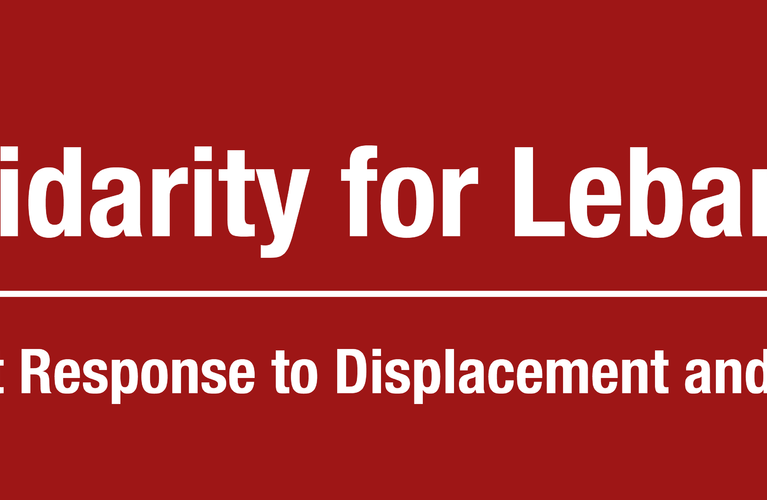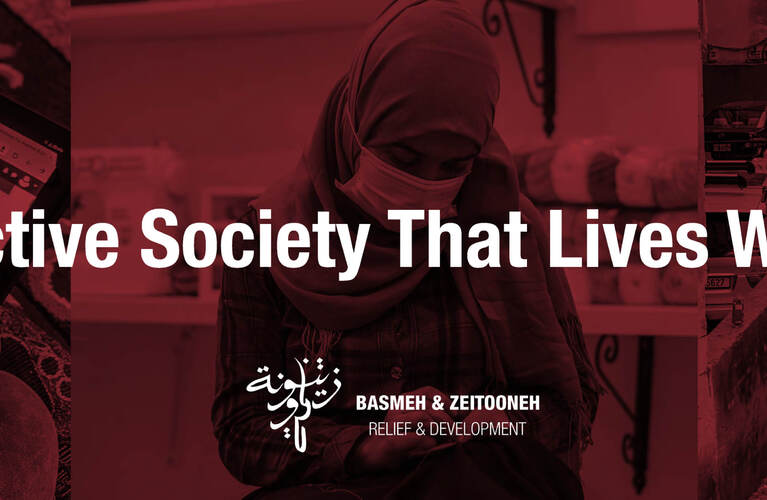Safeguarding Policy
Basmeh & Zeitooneh is an organization that exists to support children, their families, and communities in emergency relief and development contexts. Children have a right to protection and as a children’s organization we have an obligation to make sure that we safeguard the children we work with – that is to keep children safe, promote their wellbeing, and uphold their rights to protection. It is the responsibility of all Basmeh & Zeitooneh staff, sponsors, volunteers, contractors, suppliers, donors, journalists, consultants, and supporters (visitors) to protect children “from all forms of physical and mental violence, injury or abuse” (UN Convention on the Rights of the Child – Article 19).
For this reason, we have policies and systems in place to prevent abuse and harm and to safeguard children (detailed in our Child Protection Policy). These measures also protect volunteers and visitors from actions that could be misconstrued and lead to false or malicious accusations. Visits to projects, partners, and communities are opportunities to see relief and development work first-hand. Similarly volunteering for Basmeh & Zeitooneh is a great opportunity to directly support relief and development work for children.
We would like you to enjoy your volunteer work/visit and at the same time help us to keep children safe by introducing to you the key elements of our policy that affect you as a volunteer or visitor. If you have any questions you should refer to your main point of contact within Basmeh & Zeitooneh (as all our staff are trained in safeguarding) or to the in-country Basmeh & Zeitooneh protection Focal Point. You can also request to see a full copy of our Child Protection Policy.
What is child safeguarding?
Child safeguarding is the obligation placed upon organizations that work with children to keep safe, children that they come into contact with through their work – either directly or indirectly. This includes both having preventative procedures in place to minimize the chances of an incident occurring and responsive systems to respond if an incident occurs. Specifically, in safeguarding, we are particularly concerned with ensuring that children are kept safe from abuse (physical, emotional, sexual, and neglect) and are protected.
Our policy clearly states that all children have equal rights to protection when in contact with adults. Children are protected only when open and honest environments are created and exist in projects, partner organizations, and activities.
Communications and child safeguarding:
To ensure we minimize the risk that harmful relationships develop, correspondence between visitors and children is discouraged, and should the need arise it should be sent via Basmeh & Zeitooneh for monitoring rather than directly to the child. Volunteers must not develop special relationships with children and encourage these to develop outside of the normal work environment. Visitors must not exchange contact details when meeting children and young people.
All volunteering opportunities and visits to projects must be arranged officially, with the permission of the Basmeh & Zeitooneh Country Representative.
Photographs, videos, and other images – Good Practice:
- Obtain consent of the child and his/her parents or carers before taking photographs and images.
- Take and use photographs and images of children that are dignified and respectful and that do not present them as victims, vulnerable or submissive.
- Ensure children are adequately dressed in photographs and images and not in poses that could be interpreted as sexually suggestive.
- Protect the safety and privacy of children and their families by not using their images on the internet without explicit consent from Basmeh & Zeitooneh, or using them in any way that reveals the identity or location of the child and their family.
- Do not use the photographs and images of children to benefit financially or for journalistic purposes without express permission from Basmeh & Zeitooneh.
Guidance on Responsible Behavior:
This information is designed to protect children first and foremost but also to minimize the risk to visitors of being wrongly accused of inappropriate behavior or abuse. By agreeing to be an occasional volunteer or a visitor you are agreeing to abide by this guidance on the understanding that if you do not adhere to it your volunteering experience will be terminated or the visit will end.
As a Basmeh & Zeitooneh occasional volunteer or visitor,
I will:
- Always arrange my volunteering/visit through the Basmeh & Zeitooneh Head Office in Beirut, Lebanon, or the national Delegation office in the country I am visiting.
- Follow the directions and instructions of the staff member of Basmeh & Zeitooneh who is assigned to supervise my work or accompany me on the visit.
- Treat children, their families, and communities with equality and respect their privacy – for example not entering into homes without an invitation, and not showing favoritism towards a particular child.
- Take photographs, videos, and images in line with the good practice outlined in this guide.
- Discuss any concerns I have regarding the well-being of a child with a Basmeh & Zeitooneh staff member/ Child Safeguarding Focal Point.
- Ask the Basmeh & Zeitooneh staff member when I am not sure of what is acceptable behavior.
I will never:
- Use language, make suggestions, or offer advice that is inappropriate, offensive, or abusive.
- Behave physically in a manner that is inappropriate or sexually provocative. For example: fondle, hold, hug, kiss, or touch children in an inappropriate or culturally insensitive way.
- Do things for children of a personal nature that they can do for themselves.
- Condone or participate in behavior with children that is illegal, unsafe, or abusive.
- Act in ways intended to shame, humiliate, belittle, or degrade children or engage in any form of emotional abuse or physically hit a child.
- Discriminate against, show preferential treatment to, or favor particular children to the exclusion of others.
- Develop physical and/or sexual relations with children or their family members.
- Develop relationships with children which could in any way be deemed exploitative or abusive.
- Spend time alone with children away from others.
- Assist a child to leave their community, even with the consent of parents/carers, or offer children the chance to visit my country of residence.
- Exchange personal contact details with children.
- Arrange to stay overnight with a child or their family.
- Introduce other visitors to the community without prior clearance from Basmeh & Zeitooneh.
- Return to the community without going through the standard visit process with Basmeh & Zeitooneh.

